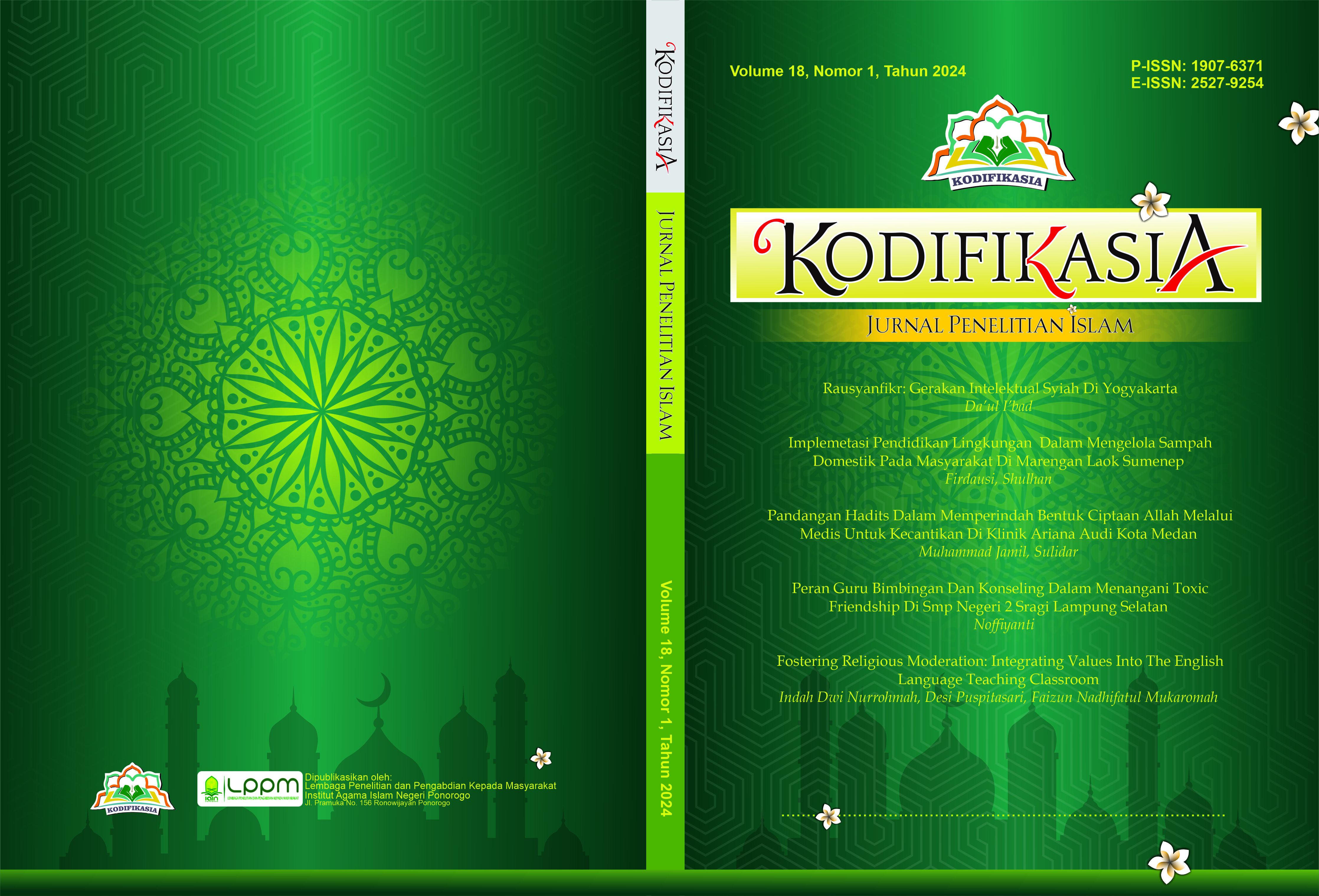THE SOCIAL CONSTRUCTION PATTERN OF RELIGIOUS MODERATION IN AN INCLUSIVE SOCIETY (A CASE STUDY OF PUNTUKDORO VILLAGE, MAGETAN)
DOI:
https://doi.org/10.21154/kodifikasia.v18i1.9664Abstract
This research aims to analyze the factors contributing to the creation of religious harmony among different faith communities in Moderation Village, Puntukdoro Village, Magetan, East Java. The study is grounded in Berger and Luckman's social construction theory, which posits that social reality is shaped through social interactions and the collective construction of individuals and communities. The philosophy of "lakum dinukum waliyadin" serves as the foundation for the community's understanding that religious diversity is both a right and an obligation of individuals. The research employs a qualitative approach and field study methodology. Data is collected through in-depth interviews, participatory observations, and document analysis. The findings reveal that the philosophy of "lakum dinukum waliyadin" plays a pivotal role in building religious harmony. The processes of externalization, objectification, and internalization interact to create a meaningful social reality of harmony. Religious harmony in Moderation Village serves as a strong basis for maintaining unity and peace among religious communities, offering inspiration on the importance of respecting religious differences in achieving social peace and harmony. This study unveils how the village community successfully constructs harmony through their social interactions.
Downloads
Published
Issue
Section
License
Copyright (c) 2024 Kodifikasia

This work is licensed under a Creative Commons Attribution-ShareAlike 4.0 International License.








